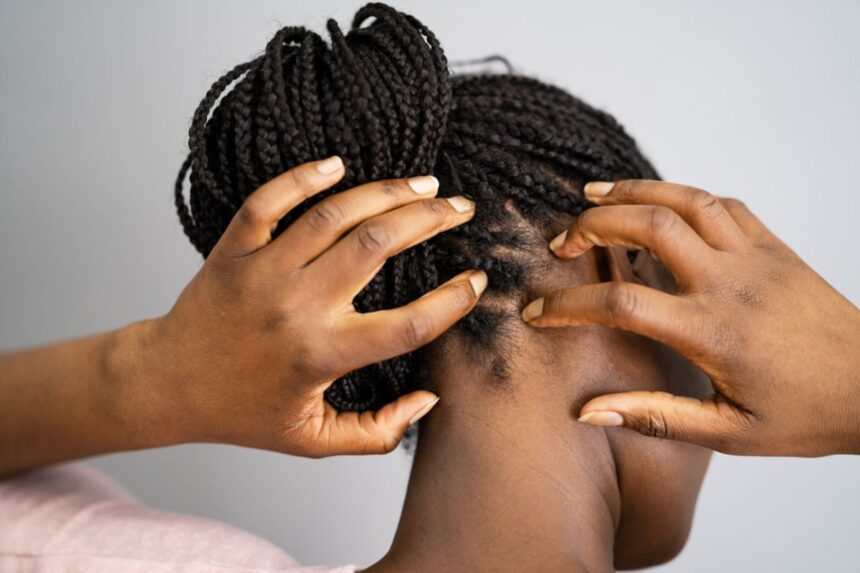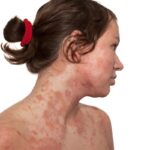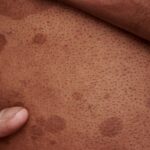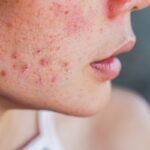Dry scalp treatments are essential in maintaining not just the health of your hair, but also its vitality and shine. This ultimate guide will take you through everything you need to know about scalp detox: from why it’s important to how you can achieve a rejuvenated scalp right at home. When it comes to personal care, the scalp often takes a backseat to the face and body. However, a healthy scalp is the foundation of healthy hair. So, let’s embark on this journey to unlock the secrets to a healthier scalp and lusher locks.
Step-by-Step Scalp Detox Guide for Dry Scalp Treatments
A scalp detox is essential for removing buildup, improving blood circulation, and paving the way for effective dry scalp treatments. This process helps reset the scalp’s environment, making it more receptive to treatments and nourishment. Below, we detail a strategic approach to detoxifying your scalp, emphasizing methods that specifically address and ameliorate dry scalp conditions.
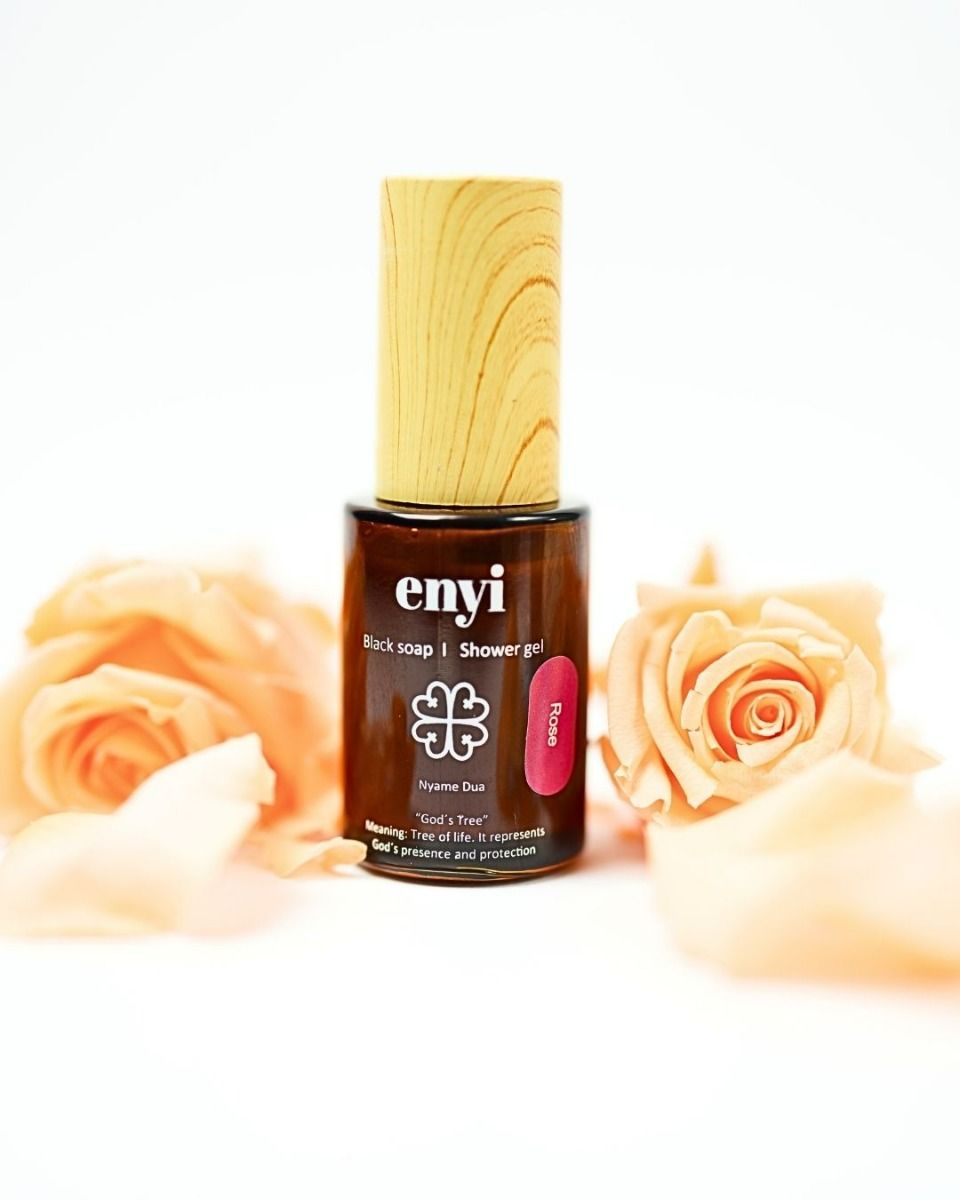
Rose Dry Scalp Shampoo
Helps to soothe, soften, and rejuvenate. The Vitamin E Oil in our formulation acts as a powerful antioxidant, providing essential protection and nourishment.
Preparation: Setting the Stage for Effective Dry Scalp Treatments
- Evaluate Your Hair Care Products: Begin by reviewing your current hair care regimen. Products containing harsh chemicals can exacerbate dry scalp conditions. Opt for natural, moisturizing ingredients that nurture the scalp without stripping away natural oils.
- Gentle Cleansing: Choose a gentle, sulfate-free shampoo as part of your dry scalp treatments. This will ensure that your scalp is cleansed of impurities without aggravating dryness.
- Hydration: Prior to starting the detox, it’s beneficial to hydrate the scalp with natural oils or a pre-detox mask. Ingredients like coconut oil, shea butter, or aloe vera are excellent for moisturizing and preparing the scalp for detoxification.
The Detox Process: Core Steps for Alleviating Dry Scalp
- Exfoliation: Use a gentle scalp scrub or a brush to exfoliate dead skin cells and buildup. This step is crucial in dry scalp treatments as it unclogs pores and enhances the absorption of moisturizing products.
- Clarifying Wash: Employ a clarifying shampoo designed for dry scalp treatments. This type of shampoo will remove any residual buildup without compromising the scalp’s natural moisture balance.
- Nourishing Mask: Apply a hydrating mask with key ingredients aimed at treating dry scalp. Look for products containing hyaluronic acid, glycerin, or honey. Leave the mask on for the recommended duration to deeply moisturize the scalp.
- Rinse Thoroughly: Ensure all products are thoroughly rinsed from the scalp to prevent new buildup. Using lukewarm water is best, as hot water can further dry out the scalp.
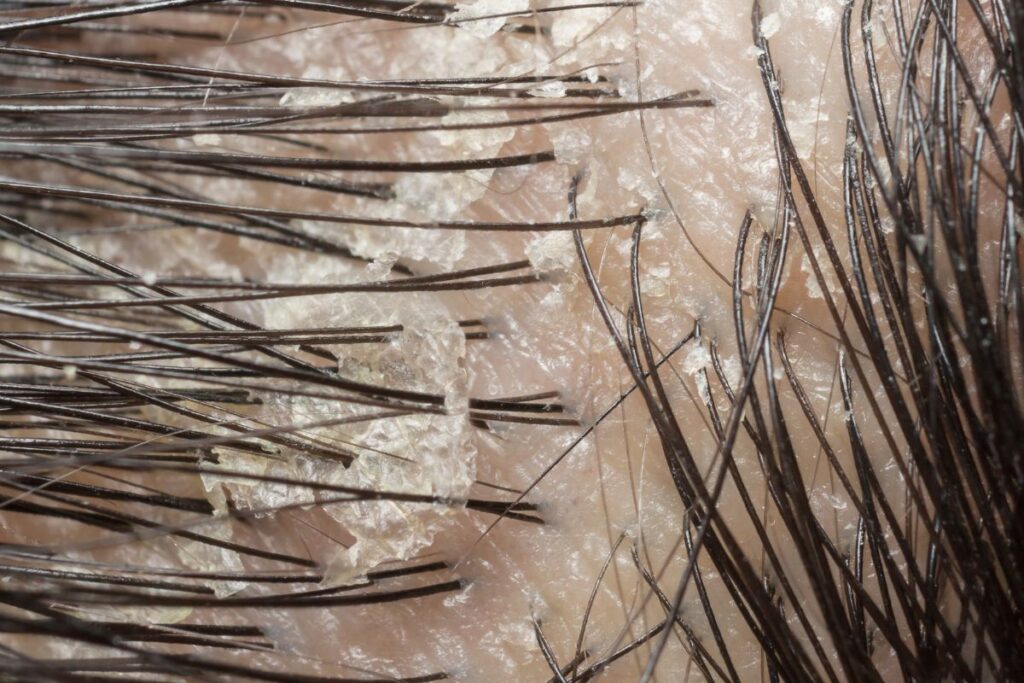
Post-Detox Care: Sustaining the Benefits of Dry Scalp Treatments
- Moisturize Regularly: Incorporate a daily or weekly scalp moisturizer into your routine. Moisturizing is a cornerstone of dry scalp treatments, helping to maintain the scalp’s hydration levels and prevent flakiness.
- Maintain a Balanced Diet: As discussed, nutrition plays a significant role in scalp health. Ensure your diet supports your dry scalp treatments by being rich in vitamins, minerals, and hydration.
- Limit Heat Styling: Excessive use of heat styling tools can strip moisture from your scalp and hair. Limit their use to preserve the integrity of your scalp’s natural oils.
- Regular Detoxes: Schedule regular detoxes (every few months) as part of your ongoing dry scalp treatments to maintain a healthy scalp environment.
- Consultation: If your dry scalp condition persists despite these efforts, consult a dermatologist. Persistent dry scalp issues may require professional dry scalp treatments or identify underlying health conditions.
By meticulously following this step-by-step guide, individuals struggling with a dry scalp can significantly improve their scalp health, creating a robust foundation for healthy hair growth. Regular detoxification, coupled with mindful care and nourishment, can transform a dry, itchy scalp into a hydrated, healthy one, underscoring the efficacy of dedicated dry scalp treatments.
Understanding Dry Scalp
The first step in addressing any problem is understanding it. A dry scalp can be caused by a variety of factors including environmental conditions, dietary habits, and even the water you shower with. Symptoms like itchiness, flakiness, and a sensation of tightness are tell-tale signs that your scalp is craving moisture and care.
Eco-Friendly Scalp Care: Sustainable Scalp Care Practices
In the pursuit of healthy hair and scalp, many of us overlook the impact of our choices on the environment. The beauty industry is notorious for contributing to plastic waste and water pollution, with countless products containing harmful chemicals that can damage our waterways and aquatic life. However, a growing awareness around sustainability is driving change, encouraging consumers and companies alike to adopt more eco-friendly practices. Sustainable scalp care is not just about choosing products that are kind to the earth; it’s about nurturing our scalp with natural ingredients that promote health without compromising on environmental values.
The Importance of Sustainable Scalp Care
Sustainable scalp care practices are vital for several reasons. Firstly, they minimize our ecological footprint. Traditional scalp care products often contain synthetic ingredients like sulfates, parabens, and silicones, which can be harmful to marine life when they wash down our drains and enter water systems. By opting for eco-friendly products, we reduce the release of these toxic substances into the environment.
Moreover, sustainable scalp care practices support biodiversity. Many eco-friendly brands prioritize the use of organic ingredients sourced from sustainable farms. This approach not only ensures the purity and efficacy of the scalp care products but also supports farming practices that protect wildlife habitats and promote soil health.
Choosing Eco-Friendly Products
When transitioning to eco-friendly scalp care, the first step is choosing the right products. Look for items with biodegradable packaging or those made from recycled materials. Many brands are now offering refill options, reducing the need for single-use plastics. Additionally, seek out products certified by reputable environmental organizations. Certifications to look for include USDA Organic, Ecocert, and the Leaping Bunny Program, which ensure that products meet stringent environmental and ethical standards.
The ingredients list is equally important. Opt for products that use natural and organic ingredients over synthetic alternatives. Ingredients like tea tree oil, aloe vera, and coconut oil are not only effective in treating dry scalp conditions but are also kinder to the environment. Furthermore, consider the carbon footprint of the products you choose. Supporting local brands reduces transportation emissions, contributing to a smaller ecological footprint.
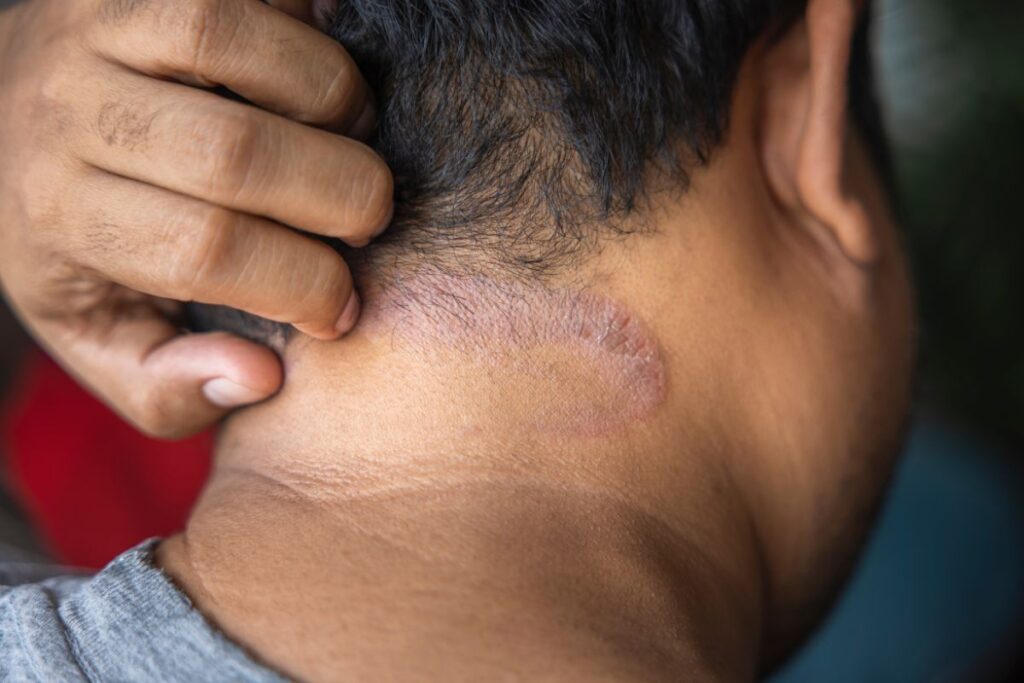
DIY Scalp Care Solutions
One of the most effective ways to ensure your scalp care routine is sustainable is by embracing DIY solutions. Homemade scalp treatments allow you to control the ingredients, ensuring they are natural and environmentally friendly. For instance, a simple scalp mask can be made by combining coconut oil, shea butter, which has antifungal and moisturizing properties, with essential oils like peppermint or lavender for their soothing and antibacterial effects.
Not only are these homemade treatments effective in addressing dry scalp issues, but they also reduce waste. By using ingredients commonly found in your kitchen or garden, you can avoid the packaging waste associated with commercial products. Additionally, DIY remedies often use whole ingredients, which can be sourced in bulk or from local markets, further reducing your environmental impact.
The Role of Lifestyle Choices
Sustainable scalp care extends beyond product selection. Lifestyle choices, such as reducing water usage and embracing a plant-based diet, can also have a significant impact. Shorter showers and turning off the tap while shampooing can save a considerable amount of water over time. Similarly, a diet rich in fruits, vegetables, and nuts supports healthy hair and scalp from the inside out, while also being more sustainable than diets high in animal products.
Nutritional Impact on Scalp Health
The adage “you are what you eat” holds profound truth, especially when it comes to the health of your scalp and hair. The scalp, like any other skin on your body, requires a plethora of nutrients to maintain its health, balance, and functionality. Malnutrition or deficiencies in certain vitamins and minerals can lead to dry, itchy scalp conditions, and even hair loss. Therefore, understanding and optimizing the nutritional impact on scalp health is a cornerstone of sustainable and effective scalp care.
Vital Nutrients for Scalp Health
Several nutrients are particularly crucial for maintaining a healthy scalp. These include:
- Vitamin A: Essential for cell growth, Vitamin A helps in the production of sebum, which moisturizes the scalp and keeps the hair healthy. Sources include sweet potatoes, carrots, and dark leafy greens.
- B Vitamins: Especially biotin (Vitamin B7), known for its role in hair growth. Deficiencies in biotin can lead to hair loss. Other B vitamins help create red blood cells, which carry oxygen and nutrients to the scalp and hair follicles. Foods rich in B vitamins include whole grains, almonds, meat, fish, seafood, and dark, leafy greens.
- Vitamin C: An antioxidant that helps protect against the oxidative stress caused by free radicals. It also plays a crucial role in collagen production and iron absorption, two factors important for scalp health and hair growth. Citrus fruits, strawberries, peppers, and guavas are good sources.
- Vitamin E: Another antioxidant, Vitamin E, helps prevent oxidative stress and boost scalp and hair health. Nuts, seeds, spinach, and broccoli are excellent sources.
- Iron: Iron deficiency is a common cause of hair loss, particularly in women. Iron helps red blood cells carry oxygen to your cells. This makes it an important mineral for many bodily functions, including hair growth. Iron-rich foods include red meat, lentils, spinach, and quinoa.
- Omega-3 Fatty Acids: These fats are important for maintaining a healthy scalp and hair. They provide the oils that keep your scalp and hair hydrated. Sources include fish like salmon, mackerel, and sardines, as well as flaxseeds, chia seeds, and walnuts.
- Zinc: Zinc plays a role in hair tissue growth and repair. It also helps keep the oil glands around the follicles working properly. Foods high in zinc include beef, spinach, wheat germ, and pumpkin seeds.
Dietary Adjustments for Scalp Health
Incorporating a diverse array of these nutrients into your daily diet can significantly improve the condition of your scalp and the quality of your hair. For those who may find it challenging to get enough of these nutrients from diet alone, supplements can be a helpful addition, though they should not replace a balanced diet. It’s also important to drink plenty of water, as hydration plays a key role in maintaining the health of your scalp and hair.
Equally important is knowing what to avoid. Diets high in processed foods, sugar, and alcohol can lead to inflammation, which may exacerbate scalp conditions and hinder hair growth. Moderation is key, along with a focus on whole foods that nourish the body and support scalp health.
The Holistic Impact of Nutrition on Scalp Health
Ultimately, the impact of nutrition on scalp health is holistic. A well-nourished body supports all its systems, including the integumentary system, which comprises the skin, hair, and nails. By making mindful choices about our diet, we can significantly influence the health and appearance of our scalp and hair. This approach not only ensures a vibrant, healthy scalp but also aligns with a lifestyle that values wellness and sustainability.
Effects of Water Quality on the Scalp
The quality of water used to wash hair can significantly influence scalp health and hair condition. Hard water, which is high in mineral content, particularly calcium and magnesium, can lead to several scalp and hair issues. It can cause dryness, itchiness, dandruff, and even exacerbate hair loss. Conversely, soft water, lower in mineral content, is generally kinder to the scalp and hair. Understanding these effects and implementing solutions to mitigate negative impacts is crucial for maintaining scalp health.
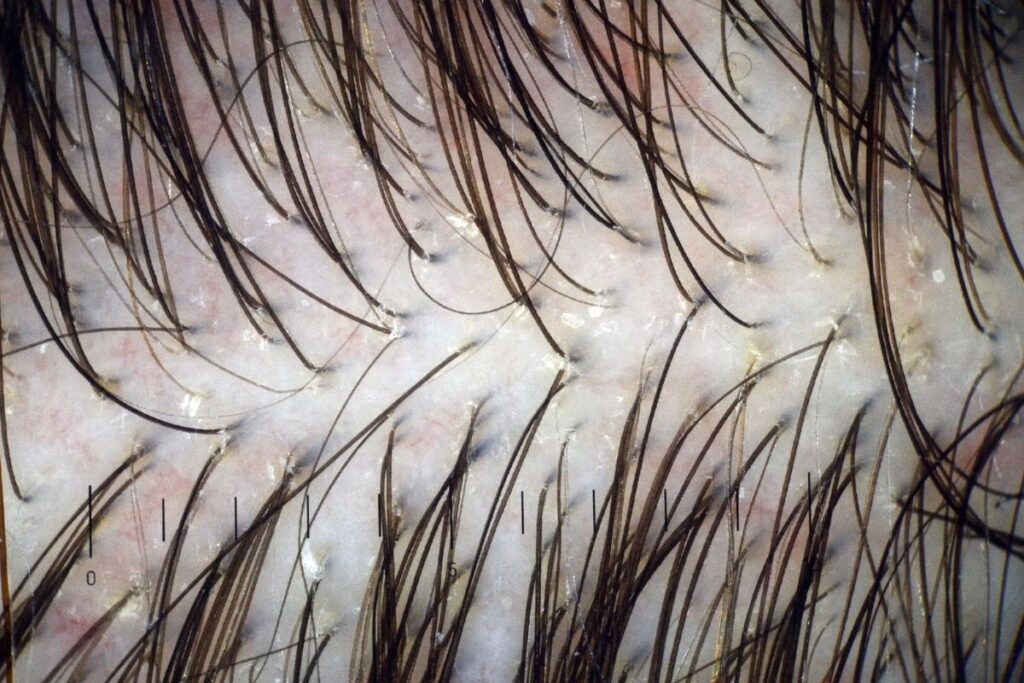
Hard Water and Its Impacts
Hard water is a common issue in many areas, affecting not just household cleaning tasks but also personal care routines. The minerals in hard water can build up on the scalp and hair, leaving a residue that’s hard to rinse away. This can clog hair follicles, leading to irritation, reduced hair growth, and increased hair breakage. The residue can also make hair look dull and feel rough to the touch.
Soft Water Benefits
Soft water, in contrast, can have a more beneficial impact on hair and scalp health. Its low mineral content means it’s less likely to leave a residue, allowing hair care products to lather more effectively and rinse out more thoroughly. This can result in cleaner, softer, and more manageable hair. Additionally, soft water can help in maintaining the natural pH balance of the scalp, reducing the risk of irritation and conditions like eczema.
Mitigating the Effects of Hard Water
For those living in areas with hard water, there are several strategies to mitigate its effects on the scalp and hair:
- Water Softeners: Installing a water softener in the home can significantly reduce the mineral content in the water, protecting the scalp and hair from hard water damage.
- Clarifying Shampoos: Using a clarifying shampoo once a week can help remove mineral buildup from the scalp and hair. However, it’s important to follow up with a moisturizing conditioner, as clarifying shampoos can be drying.
- Shower Filters: A more affordable option than water softeners, shower filters can remove a significant amount of minerals from water, improving its quality for hair washing.
- Leave-in Conditioners and Scalp Treatments: Products designed to moisturize and protect the scalp and hair can help counteract the drying effects of hard water. Look for products rich in hydrating ingredients like aloe vera, glycerin, and natural oils.
Assessing Water Quality
Understanding the water quality in your area can guide you in choosing the right strategies to protect your scalp and hair. Water quality reports are often available from local utilities or environmental protection agencies. Additionally, home testing kits can provide insight into the mineral content of your household water.
The Holistic Approach to Managing Water Quality Effects
Adopting a holistic approach to managing the effects of water quality involves not just treating the symptoms but also preventing the causes of scalp and hair issues. This may include investing in water treatment solutions, adjusting hair care routines, and using products designed to protect against mineral buildup.
Step-by-Step Scalp Detox Guide for Dry Scalp Treatments
A scalp detox is essential for removing buildup, improving blood circulation, and paving the way for effective dry scalp treatments. This process helps reset the scalp’s environment, making it more receptive to treatments and nourishment. Below, we detail a strategic approach to detoxifying your scalp, emphasizing methods that specifically address and ameliorate dry scalp conditions.
Preparation: Setting the Stage for Effective Dry Scalp Treatments
- Evaluate Your Hair Care Products: Begin by reviewing your current hair care regimen. Products containing harsh chemicals can exacerbate dry scalp conditions. Opt for natural, moisturizing ingredients that nurture the scalp without stripping away natural oils.
- Gentle Cleansing: Choose a gentle, sulfate-free shampoo as part of your dry scalp treatments. This will ensure that your scalp is cleansed of impurities without aggravating dryness.
- Hydration: Prior to starting the detox, it’s beneficial to hydrate the scalp with natural oils or a pre-detox mask. Ingredients like coconut oil, shea butter, or aloe vera are excellent for moisturizing and preparing the scalp for detoxification.
The Detox Process: Core Steps for Alleviating Dry Scalp
- Exfoliation: Use a gentle scalp scrub or a brush to exfoliate dead skin cells and buildup. This step is crucial in dry scalp treatments as it unclogs pores and enhances the absorption of moisturizing products.
- Clarifying Wash: Employ a clarifying shampoo designed for dry scalp treatments. This type of shampoo will remove any residual buildup without compromising the scalp’s natural moisture balance.
- Nourishing Mask: Apply a hydrating mask with key ingredients aimed at treating dry scalp. Look for products containing hyaluronic acid, glycerin, or honey. Leave the mask on for the recommended duration to deeply moisturize the scalp.
- Rinse Thoroughly: Ensure all products are thoroughly rinsed from the scalp to prevent new buildup. Using lukewarm water is best, as hot water can further dry out the scalp.
Post-Detox Care: Sustaining the Benefits of Dry Scalp Treatments
- Moisturize Regularly: Incorporate a daily or weekly scalp moisturizer into your routine. Moisturizing is a cornerstone of dry scalp treatments, helping to maintain the scalp’s hydration levels and prevent flakiness.
- Maintain a Balanced Diet: As discussed, nutrition plays a significant role in scalp health. Ensure your diet supports your dry scalp treatments by being rich in vitamins, minerals, and hydration.
- Limit Heat Styling: Excessive use of heat styling tools can strip moisture from your scalp and hair. Limit their use to preserve the integrity of your scalp’s natural oils.
- Regular Detoxes: Schedule regular detoxes (every few months) as part of your ongoing dry scalp treatments to maintain a healthy scalp environment.
- Consultation: If your dry scalp condition persists despite these efforts, consult a dermatologist. Persistent dry scalp issues may require professional dry scalp treatments or identify underlying health conditions.
By meticulously following this step-by-step guide, individuals struggling with a dry scalp can significantly improve their scalp health, creating a robust foundation for healthy hair growth. Regular detoxification, coupled with mindful care and nourishment, can transform a dry, itchy scalp into a hydrated, healthy one, underscoring the efficacy of dedicated dry scalp treatments.
Recognizing and Addressing Scalp Conditions as Part of Dry Scalp Treatments
Scalp conditions can range from mild dryness and flakiness to more severe conditions like psoriasis or dermatitis, each requiring specific approaches as part of effective dry scalp treatments. Recognizing the signs and symptoms of these conditions early on can significantly enhance the effectiveness of treatments and prevent further complications.
Identifying Common Scalp Conditions
- Dry Scalp: Characterized by a tight feeling and visible flakiness, a dry scalp can result from environmental factors, over-washing, or using harsh hair care products. Integrating hydrating dry scalp treatments, such as moisturizing masks or natural oils, can provide relief.
- Seborrheic Dermatitis: This condition, often appearing as red, greasy skin covered with flaky white or yellow scales, requires specialized dry scalp treatments. Over-the-counter antifungal shampoos and topical corticosteroids are commonly used.
- Psoriasis: Marked by raised, red, scaly patches on the scalp, scalp psoriasis can be part of the body’s systemic psoriasis condition. Treatments include medicated shampoos, topical treatments, and, in more severe cases, prescription medications.
- Contact Dermatitis: Resulting from an allergic reaction to a product or ingredient, this condition can cause a red, itchy, and sometimes painful scalp. Identifying and eliminating the allergen is key, along with soothing dry scalp treatments to reduce symptoms.
Effective Dry Scalp Treatments for Scalp Conditions
- Moisturizing Treatments: Regular use of intensive moisturizing treatments is fundamental for managing dry scalp conditions. Look for products with ingredients like aloe vera, glycerin, and hyaluronic acid to hydrate and soothe the scalp.
- Medicated Shampoos and Topicals: For conditions like seborrheic dermatitis and psoriasis, medicated shampoos containing ketoconazole, salicylic acid, or coal tar can be effective. These ingredients help reduce inflammation, flakiness, and itchiness as part of targeted dry scalp treatments.
- Natural Remedies: Incorporating natural remedies like tea tree oil, which has antifungal and antibacterial properties, can complement dry scalp treatments by soothing irritation and reducing symptoms.
- Lifestyle Adjustments: Alongside topical treatments, lifestyle adjustments can play a crucial role. Reducing stress, improving dietary habits, and avoiding potential irritants are all supportive measures that enhance the effectiveness of dry scalp treatments.
- Professional Consultation: For persistent or severe scalp conditions, consulting a dermatologist is essential. They can provide tailored dry scalp treatments based on a thorough diagnosis, including prescription-strength medications and therapies.
Maintaining a Healthy Scalp
Preventive care is just as important as treating existing conditions. Regularly detoxifying the scalp, choosing the right hair care products, and staying hydrated are key strategies for maintaining scalp health. Additionally, regular check-ups with a dermatologist can preempt the development of severe scalp conditions, ensuring that dry scalp treatments are as effective as possible.
By recognizing the signs of various scalp conditions and understanding the range of available dry scalp treatments, individuals can take proactive steps toward maintaining a healthy, hydrated scalp. This not only improves overall hair health but also enhances comfort and confidence.
Linking Stress Management with Scalp Health in Dry Scalp Treatments
Stress is a common trigger for various health issues, including those affecting the scalp. High stress levels can lead to hormonal imbalances and reduced blood circulation, both of which can contribute to or worsen dry scalp conditions. Recognizing the connection between stress and scalp health is the first step in integrating effective stress management strategies into dry scalp treatments.
Understanding the Stress-Scalp Connection
- Hormonal Imbalances: Stress can lead to an overproduction of certain hormones, like cortisol, which may disrupt the natural balance of oils on the scalp, leading to dryness or exacerbating existing scalp conditions.
- Blood Circulation: Chronic stress can negatively affect blood circulation, including circulation to the scalp. This can impair the delivery of nutrients to hair follicles, potentially leading to weakened hair roots and a dry, unhealthy scalp.
- Immune Response: Stress can also impact the body’s immune response, making the scalp more susceptible to inflammation and infections, which can further dry out the scalp or aggravate conditions like dermatitis.
Incorporating Stress Management into Dry Scalp Treatments
Effective dry scalp treatments should address not only the physical symptoms but also the potential underlying stressors. Here are some strategies:
- Relaxation Techniques: Practices such as yoga, meditation, and deep-breathing exercises can significantly reduce stress levels, improving overall scalp health. Incorporating these practices can enhance the effectiveness of dry scalp treatments by addressing one of the root causes of scalp issues.
- Regular Exercise: Physical activity increases blood flow throughout the body, including to the scalp. This can help nourish scalp tissues and hair follicles, promoting a healthier scalp environment as part of holistic dry scalp treatments.
- Balanced Diet: A diet rich in antioxidants, vitamins, and minerals can support the body’s stress response and promote scalp health. Foods high in omega-3 fatty acids, for example, can help moisturize the scalp from the inside out, complementing topical dry scalp treatments.
- Adequate Sleep: Ensuring sufficient rest and sleep is crucial for managing stress and by extension, promoting scalp health. Lack of sleep can exacerbate stress and its negative effects on the scalp, making it an important consideration in dry scalp treatments.
- Professional Support: For those experiencing significant stress, seeking support from a mental health professional can be beneficial. Therapies like cognitive-behavioral therapy (CBT) can provide effective stress management techniques, indirectly supporting dry scalp treatments.
Maintaining a Stress-Free Routine
Adopting a routine that minimizes stress can have profound benefits for scalp health. This includes setting aside time for self-care, pursuing hobbies, and ensuring a work-life balance. Creating a stress-free environment not only aids in the efficacy of dry scalp treatments but also enhances overall well-being.
Through the integration of stress management techniques, individuals can create a conducive environment for the effectiveness of dry scalp treatments. By addressing the holistic relationship between stress and scalp health, it’s possible to achieve more sustainable outcomes and improve both scalp condition and quality of life.
Debunking Scalp Care Myths and Emphasizing Effective Dry Scalp Treatments
Misinformation can often lead to practices that do more harm than good to scalp health. Understanding and debunking these myths is crucial in adopting effective dry scalp treatments that truly benefit scalp health.
Myth 1: Washing Your Hair Less Often Prevents Dry Scalp
One common misconception is that reducing the frequency of hair washing can prevent or cure a dry scalp. While over-washing with harsh shampoos can strip the scalp of its natural oils, a proper cleansing routine is vital for removing buildup that can contribute to scalp dryness. Instead, the focus should be on using gentle, hydrating products formulated for dry scalp treatments and adjusting the washing frequency to your scalp’s needs.
Myth 2: Only People with Dry Hair Have Dry Scalp
Scalp health is not solely dependent on hair type. Individuals with oily hair can also suffer from a dry scalp due to factors such as environmental conditions, stress, and the use of inappropriate hair care products. It’s important to select dry scalp treatments based on the scalp’s condition rather than hair type.
Myth 3: Intensive Conditioning Can Cure Dry Scalp
While conditioners are essential for hair health, providing moisture and improving hair manageability, they’re not a standalone solution for a dry scalp. Dry scalp treatments require a holistic approach that may include special scalp serums, oils, and treatments designed to address the root causes of dryness directly on the scalp, not just the hair.
Myth 4: Scalp Issues Are Primarily Cosmetic
Scalp health is an integral part of overall well-being, and issues like dry scalp can be symptoms of underlying health conditions, nutritional deficiencies, or stress. Effective dry scalp treatments often necessitate a comprehensive approach that considers dietary habits, stress management, and the use of appropriate topical products.
Effective Dry Scalp Treatments: A Holistic Approach
Effective management of a dry scalp involves a multifaceted approach:
- Hydration: Regularly moisturizing the scalp with products specifically formulated for dry scalp treatments can alleviate symptoms and prevent recurrence.
- Gentle Cleansing: Using sulfate-free, hydrating shampoos helps maintain the natural moisture balance of the scalp.
- Nutritional Support: A balanced diet rich in essential vitamins, minerals, and omega-3 fatty acids supports healthy scalp skin.
- Environmental Considerations: Protecting the scalp from harsh environmental factors, such as extreme temperatures and pollution, is crucial.
- Stress Management: Reducing stress through mindfulness, exercise, and adequate rest can positively impact scalp health.
In conclusion, managing a dry scalp requires debunking common myths and adopting evidence-based practices tailored to individual needs. By understanding the underlying causes of scalp dryness and selecting appropriate dry scalp treatments, individuals can achieve and maintain a healthy scalp, laying the foundation for strong, vibrant hair.


